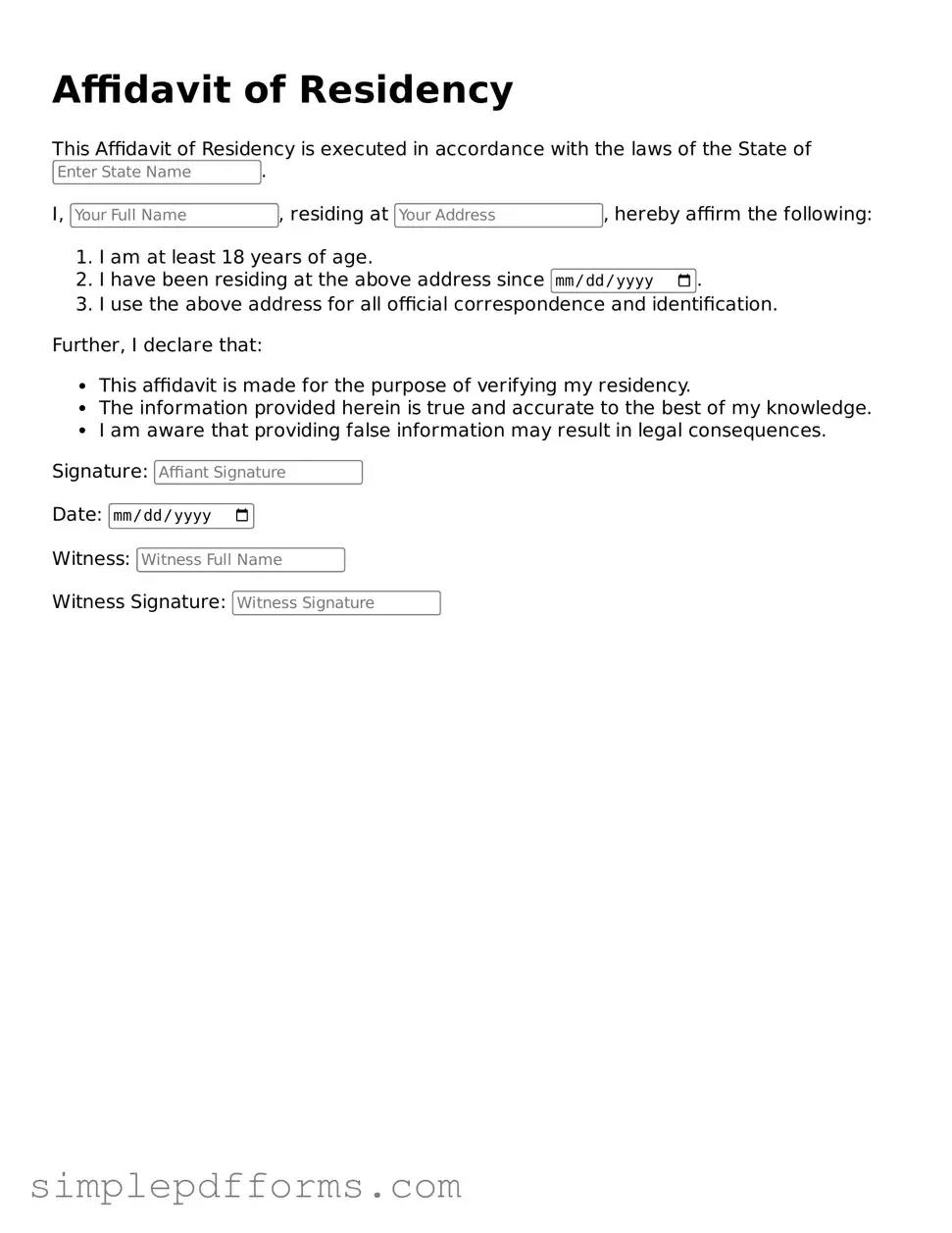Filling out the Affidavit of Residency form can be a straightforward task, but many individuals encounter pitfalls that can lead to delays or complications. One common mistake is failing to provide accurate personal information. It’s essential to ensure that your name, address, and contact details are correct. An error here can lead to confusion and may require you to start the process over.
Another frequent issue is neglecting to sign and date the form. A signature is crucial, as it verifies that the information provided is true to the best of your knowledge. Without a signature, the affidavit may be considered incomplete, which can hinder your application or request.
Some people overlook the requirement for a witness or notary. Depending on the jurisdiction, the affidavit may need to be signed in front of a witness or a notary public. Failing to include this step can render the document invalid, causing unnecessary delays.
Inconsistent information is also a problem. If the details on the Affidavit of Residency do not match other documents, such as your driver's license or utility bills, it can raise red flags. Always double-check that the information is consistent across all documents to avoid complications.
Another mistake is providing insufficient proof of residency. Many forms require supporting documents, such as utility bills or lease agreements. Ensure that you include all necessary documentation to support your claim. Omitting these can lead to rejection of the affidavit.
Some individuals forget to read the instructions carefully. Each form may have specific requirements and guidelines. Taking the time to read through these instructions can help prevent errors and ensure that the form is filled out correctly.
People often make the mistake of using outdated forms. It's crucial to verify that you are using the most current version of the Affidavit of Residency. Using an old form can lead to confusion and may not be accepted by the authorities.
Inaccurate dates can also be a significant issue. When filling out the form, ensure that all dates are correct and reflect the actual time frame of your residency. Incorrect dates can lead to complications in verifying your residency status.
Lastly, some individuals rush through the process. Taking your time to fill out the form thoughtfully can help you avoid many of the mistakes mentioned. Review your answers and ensure everything is complete before submission.
By being mindful of these common mistakes, individuals can navigate the process more smoothly and ensure that their Affidavit of Residency is accepted without unnecessary complications.

